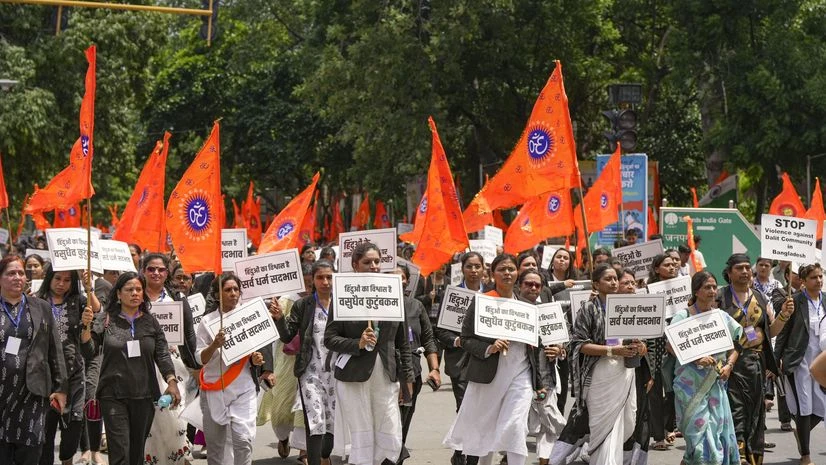Under Muhammad Yunus’s interim government, Bangladesh is considering changes to its Constitution that could remove secularism as a fundamental principle. The Bangladeshi newspaper Prothom Alo reported on Wednesday that the constitution reform commission, formed by the interim administration, has proposed replacing secularism and two other core tenets with four new principles.
Of the current four fundamental principles, only democracy would reportedly remain unchanged. The existing principles—nationalism, socialism, democracy, and secularism—were established in the 1972 constitution, drafted after Bangladesh’s independence during the 1971 India-Pakistan War, known locally as the Liberation War. The reform commission has proposed five new principles: equality, human dignity, social justice, pluralism, and democracy. These, the commission asserts, reflect both the spirit of the Liberation War and the aspirations of the people in the wake of the 2024 uprising.
The commission’s report recommends removing secularism, socialism, and nationalism as constitutional principles, along with related provisions in Articles 8, 9, 10, and 12.
On Wednesday, the constitution reform commission submitted its report to Yunus, the chief adviser of the interim government. In a brief presentation of the recommendations, the commission’s head suggested holding a referendum to amend the constitution. The interim government plans to discuss the reform proposals with political parties in February and move forward based on a consensus.
Also Read
The interim government, which assumed power following the July uprising, has announced its intention to implement reforms in various sectors. To this end, it formed 11 reform commissions in two phases. In the first week of October last year, commissions were established to address the electoral system, police administration, judiciary, anti-corruption measures, public administration, and constitutional matters.
Relations between India and Bangladesh have been strained since former Prime Minister Sheikh Hasina, 77, was removed from power in August 2024 after widespread anti-government protests ended her 16-year tenure. Following her ouster, Hasina left Bangladesh and fled to India on August 5. She has been living in exile, with her last confirmed location being a military airbase near New Delhi.
Tensions have increased under Yunus, who assumed power shortly after Hasina’s departure. Incidents such as attacks on Hindus and the arrest of Hindu monk Chinmoy Krishna Das in Bangladesh have further deepened the discord. Bangladesh’s interim government has also formally requested Hasina’s return to Dhaka and revoked her diplomatic passport.

)